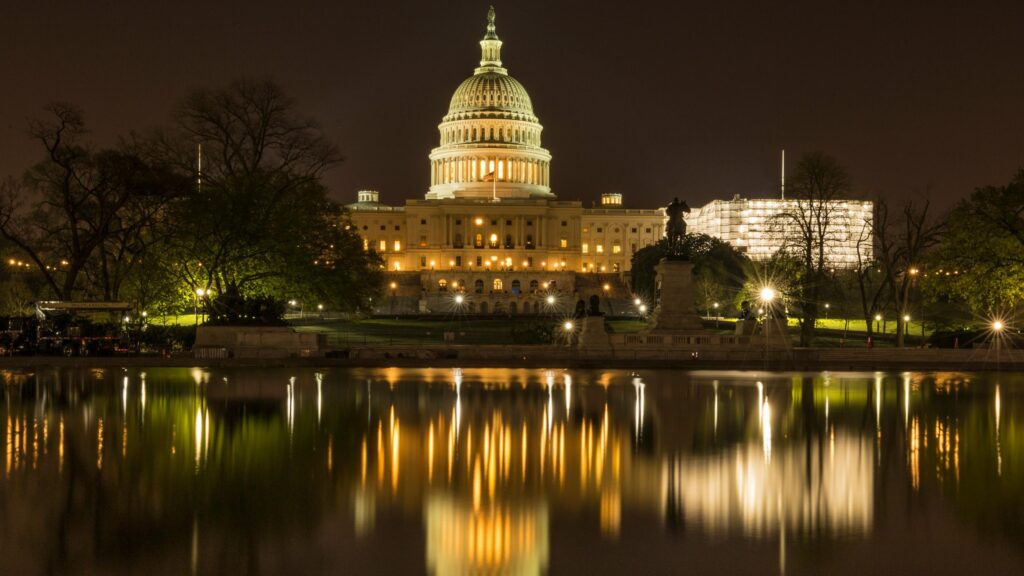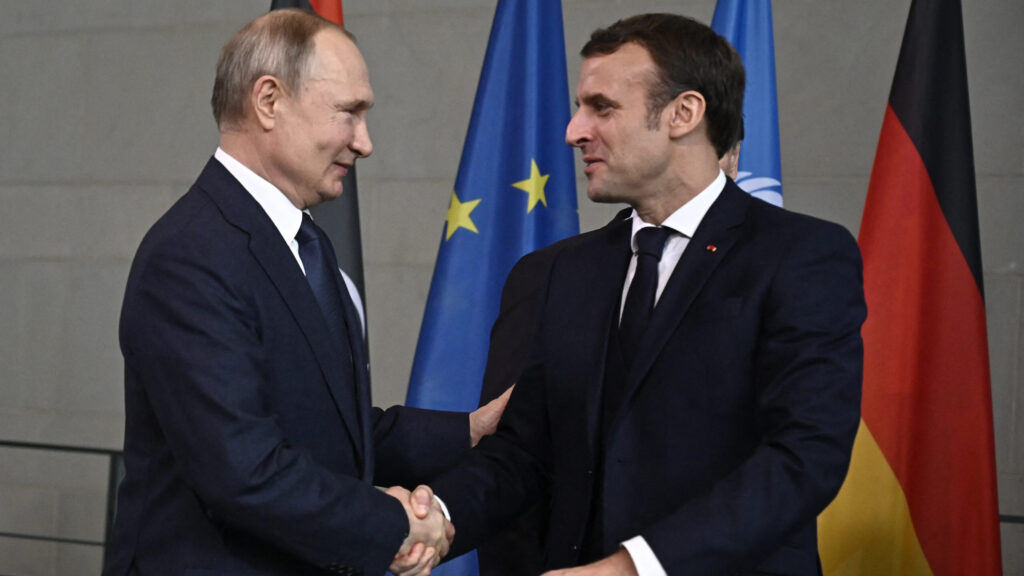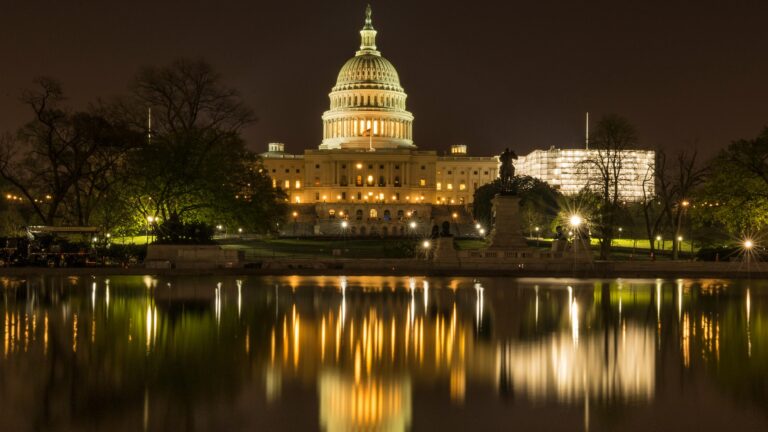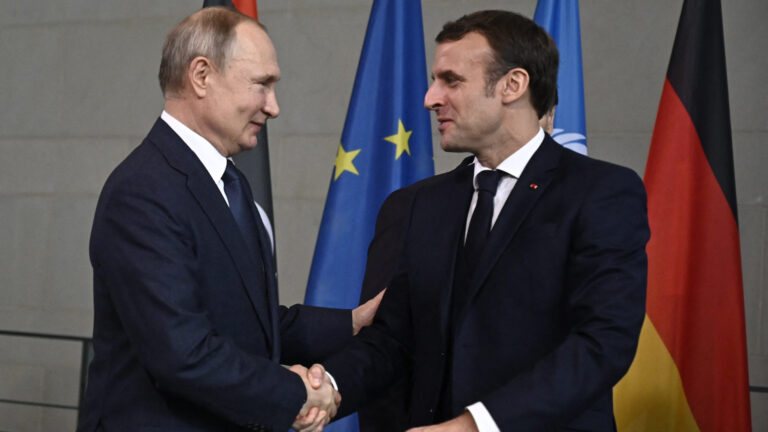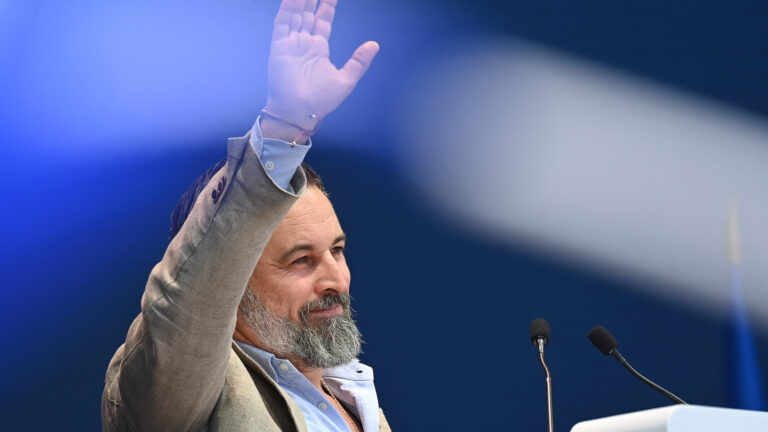The year 2024 was a real election super year: in addition to national elections across Europe, voters determined the composition of the European Parliament, while overseas, the United States held its presidential election in November. The results are clear: both in Europe and the United States, national patriotic forces have gained strength, reversing the dominance of globalist-progressive parties in recent years.
The Big Moment for AfD?
Although 2025 will not be an election super year, it still promises a number of significant elections for those with a keen interest in politics. As early as February, voters in Germany—one of the European Union’s leading states—will head to the polls following the collapse of Chancellor Olaf Scholz’s government at the end of 2024 and his subsequent resignation after a vote of no confidence.
Germany’s economy has deteriorated at an alarming rate in recent years, with significant repercussions for the economic performance of other EU Member States, including Hungary. The progressive traffic-light coalition—comprising the socialists, liberals, and greens—has undermined the car industry, the cornerstone of Germany’s economy, through a poorly planned push for a green transition that lacks both logic and pragmatism. Additionally, in response to Russia’s invasion of Ukraine, Germany has cut off cheap Russian energy, a foundation of its past economic growth. This decision has further exacerbated the current economic downturn.
Germany has also experienced a significant influx of immigrants, many of whom have entered the country illegally, stemming from the Willkommenskultur (welcome culture) introduced by Angela Merkel in 2015. Meanwhile, ordinary Germans are increasingly facing negative consequences: a sharp decline in public safety, an overwhelmed immigration system, and trillions of euros spent on migrants.
In response to these challenges, Germans are turning to right-wing parties. CDU/CSU is confidently leading the polls, commanding 30 per cent of voter support less than six weeks before the elections, according to a POLITICO Poll of Polls summary. However, the anti-immigration, sovereigntist right-wing party Alternative für Deutschland (AfD) is also gaining momentum, polling at 19 per cent. A survey conducted by IPSA and Bild at the end of December revealed that 24 per cent of voters would prefer AfD co-chair Alice Weidel as chancellor—outpacing all other candidates, including Friedrich Merz of the CDU.
Adding to this political shift, US billionaire Elon Musk, owner of X and Tesla, has recently signalled his support for the AfD in posts on his social media platform. Following the tragic terrorist attack in Magdeburg just before Christmas, Musk has amplified his backing of the party mainly for its anti-immigration views. On 9 January, Musk is set to interview Weidel in a live broadcast on his social media platform.
The AfD, however, remains mired in scandals, accusations of Nazism, and demonizing campaigns, making it unlikely to join a governing coalition after the February elections. All mainstream parties continue to enforce a cordon sanitaire against the right-wing party, refusing to form alliances with them. Nevertheless, with substantial support from a significant portion of the electorate, the AfD may find an opportunity to eventually break out of this political isolation—a development that would mark a major development for both the party and the European right. Such an outcome would fundamentally alter the political landscape in Germany and the European Union, where progressive governments have been going against the will and interests of the majority of their citizens.
Poles to the Polls!
Poland is set to hold presidential elections in 2025. In October 2023, a party alliance led by Donald Tusk won the parliamentary elections, bringing an end to nearly a decade of rule by the Law and Justice Party (PiS). This marked a significant shift for Hungary, which lost a long-standing ally in its battles against migration, rule-of-law procedures, and the progressive agenda in the European Union.
Since then, relations between the two countries have deteriorated sharply. At the end of 2024, Hungary granted political asylum to former Polish Deputy Justice Minister Marcin Romanowski, whom the Tusk government, through its transformed judicial system, seeks to convict on political grounds—paralleling cases such as those of Donald Trump in the United States, Matteo Salvini in Italy, and Marine Le Pen in France.
The outcome of the presidential election will be pivotal for Poland’s future. The conservative incumbent, Andrzej Duda, is striving to resist Donald Tusk’s efforts to target public media and reshape the judiciary. Should this conservative stronghold fall, Tusk would face no significant obstacles in advancing his vision of making Poland a vassal state of Brussels.
Such a development would have profound implications not only for the future of Hungarian–Polish relations but also for the broader Visegrád cooperation framework, potentially reshaping regional alliances in Central Europe.
‘Should this conservative stronghold fall, Tusk would face no significant obstacles in advancing his vision of making Poland a vassal state of Brussels’
PiS and the Civic Coalition (CO) are neck and neck in opinion polls, but when it comes to presidential candidates, CO’s nominee, Warsaw Mayor Rafał Trzaskowski, holds a significant lead over Karol Nawrocki, the PiS-backed candidate. However, PiS finds itself in a familiar scenario—in 2015, just two weeks before the election, incumbent president Bronisław Komorowski led Andrzej Duda by 15 percentage points, yet Duda triumphed in both rounds.
The current situation bears a striking resemblance to 2015. Nawrocki, already actively travelling across the country, is engaging with supporters and addressing citizens’ concerns, while Trzaskowski appears to be settling into the comfort of his current lead. Nawrocki, 41, is a historian who previously directed Poland’s World War II Museum and the Institute of National Remembrance, an organization tasked with documenting wartime crimes against the Polish nation.
A Blow for the Woke
Justin Trudeau’s tenure as prime minister of Canada appears increasingly precarious. This is not only due to the upcoming parliamentary elections on 20 October but also because his minority government remains vulnerable to collapse, which could force his resignation in any moment.
Trudeau has become one of the most prominent figures in the progressive movement and a global advocate for their agenda, earning him the reputation of being the ‘most woke’ leader among the G7. Under his administration, Canadians have grappled with unprecedented challenges: a severe housing crisis, high inflation, an escalating cost of living, massive government spending, and soaring deficits.
Trudeau is under pressure both domestically and internationally. US President-elect Donald Trump has called on Canada to abandon what he describes as its exploitation of the United States in trade, urging the country to strengthen border security in particular and increase defence spending more broadly.
Conservative leader Pierre Poilievre has emerged as the frontrunner in the polls, campaigning on promises of common-sense solutions to the challenges facing Canadians, including affordable housing and a comprehensive housing program. Poilievre also advocates for a return to Canada’s abundant fossil fuel resources to stimulate economic growth—a stance that directly challenges Trudeau’s climate change agenda.
The outcome of the Canadian election holds greater significance in the ongoing culture war between progressives and conservatives, than in geopolitics. Nevertheless, a victory for Poilievre could signal closer cooperation between Canada and Hungary, particularly in areas such as support for Israel.
The Stolen Election of Romania
Romania was scheduled to hold its presidential election last December, but after the first round was won by EU and NATO critic, sovereigntist ultranationalist candidate Călin Georgescu, the Constitutional Court annulled the results. The court justified its decision by citing alleged Russian interference, pointing to Georgescu’s heavy reliance on TikTok and influencers during the final weeks of his campaign.
Since then, a Romanian appeals court has rejected Georgescu’s challenge to the Constitutional Court’s decision. The ultranationalist candidate protested the ruling on Tuesday last week, stating: ‘Justice has been brought to its knees again. Through what happened today, the people [have been] condemned to accept corruption and injustice as a state of affairs.’
The Romanian government has yet to announce plans for a new election. In the meantime, incumbent President Klaus Iohannis has extended his term, while potential candidates prepare to contest a re-run of the election.
Related articles:


